Gurls Talk: Adwoa Aboah on creating a 'safe space' for women
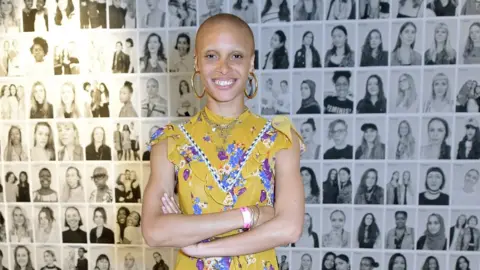 Getty Images
Getty ImagesGurls Talk is an online community for young women to discuss things like mental health, sex, and social media.
Its first real-life festival has taken place in London, with talks and workshops.
"I told other girls they could open up to me, so I'm not leaving," says founder and model Adwoa Aboah, who's had her own struggles with depression.
"The moment I opened my mouth I took on that responsibility."
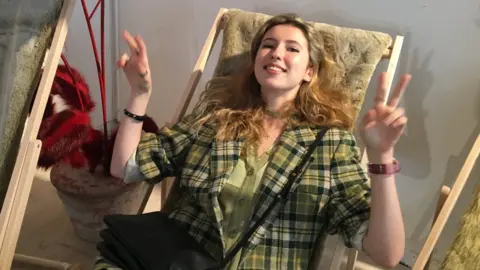 BBC News
BBC NewsHundreds of young women and men came along to the free event.
"I think it's important that girls can speak to each other about their problems because sexism is at all levels of society," says 18-year-old Clara.
"I'm in high school, and it's still very obvious that the guys get to talk more, and get to take more places than the girls."
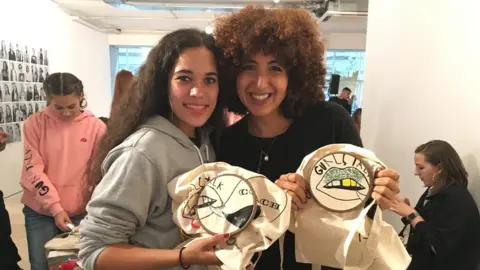 BBC News
BBC NewsGurls Talk began as an Instagram account in 2015, encouraging women to share their stories.
Since then it's grown into something bigger, with Adwoa giving talks in schools, and lots of women writing in for advice.
"These are my girls, these are my tribe. Having them all here was amazing," says Adwoa.
She spent much of Saturday hugging the girls who went along, and even started a conga line with them at one point.
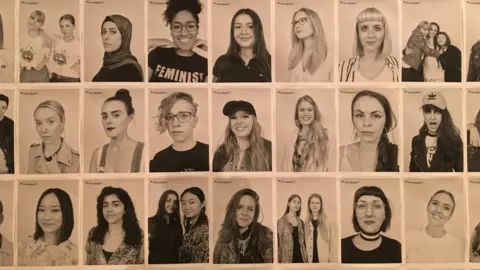 BBC News
BBC News"I think it's important for women to know that they're not alone," says Umi, who is 17. "We're always stigmatised with words like 'bossy', or [people will say] 'That's not ladylike', or 'slut.'"
She feels teenagers are often not listened to.
"Young girls experience sexual harassment in ways that we don't talk about enough, or people don't take seriously. From age 13 onwards, I've been catcalled in the street. That's not OK."
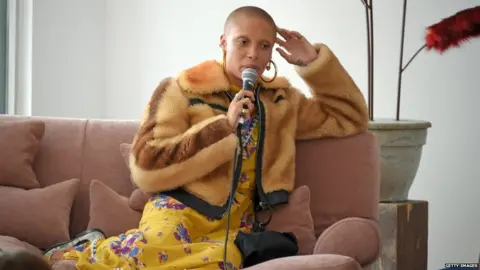 Getty Images
Getty ImagesAdwoa was among the speakers at Saturday's event, alongside top model Hanne Gaby Odiele, feminist columnist Laurie Penny, doctors and relationship experts.
"Hearing someone that you put on a pedestal talk about their experiences in such a raw way is really nice. You realise that all the people you idolise are just people," says Lauren, 19.
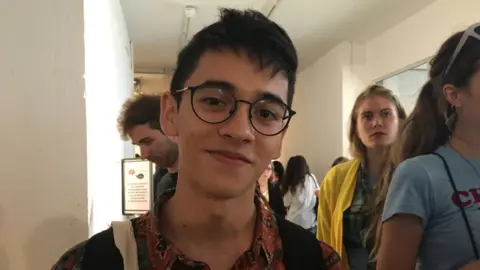 BBC News
BBC NewsMany girls at the event asked Adwoa about how to cope with the pressure they feel from social media to look a certain way.
"I completely understand because I was in that place of projecting this very fake image of who I was," Adwoa tells Newsbeat.
"Sometimes I feel like I'm adding to that worm hole of imagery that's so detrimental to how women look at themselves.
"The people at the top of the social media game don't always take on that responsibility. They show a life that's out of many people's reach."
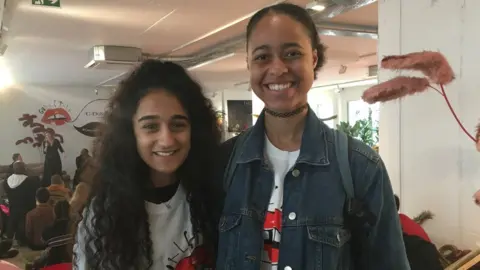 BBC News
BBC NewsSeventeen-year old Isra tells Newsbeat she wants to see more diverse images of beauty promoted.
"When you look at television adverts, when you look at magazines, you see the models and they're all of one body type, one colour type, and it does get to you," she says.
"You're like, 'Why do they epitomise white European features so much? Am I not beautiful?'
"They're embracing diversity only through [skin] colour, not through facial features, body features. Diversity's so much more than colour."
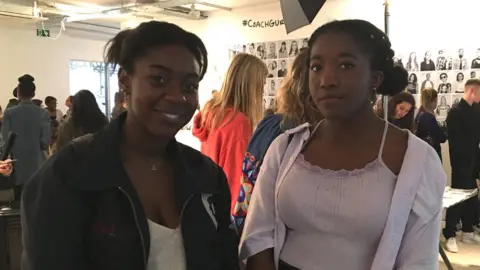 BBC News
BBC NewsAdwoa is often credited with helping to increase diversity in modelling.
She appeared on the March cover of American Vogue, alongside six models of differing skin tone and body shape, and in the new Gap advert, directed by new Vogue editor Edward Enninful, with the slogan 'Unified in harmony'.
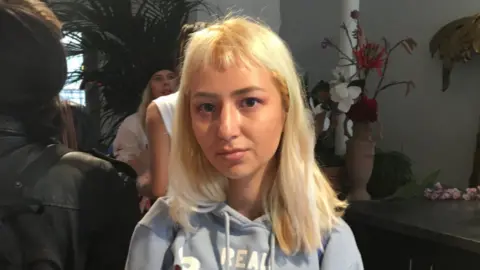 BBC News
BBC NewsShe says she hopes campaigns like these signify real change in the industry.
"I am only one type of girl as well. It shouldn't just be, 'OK we put Adwoa in so we've hit that quota.' It's not good enough."
Find us on Instagram at BBCNewsbeat and follow us on Snapchat, search for bbc_newsbeat
